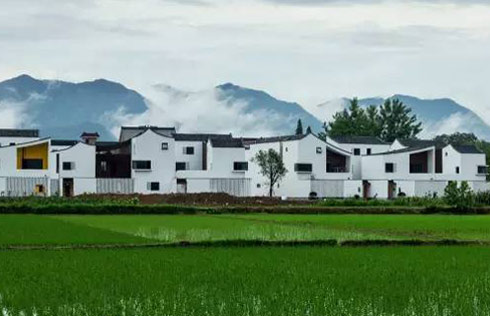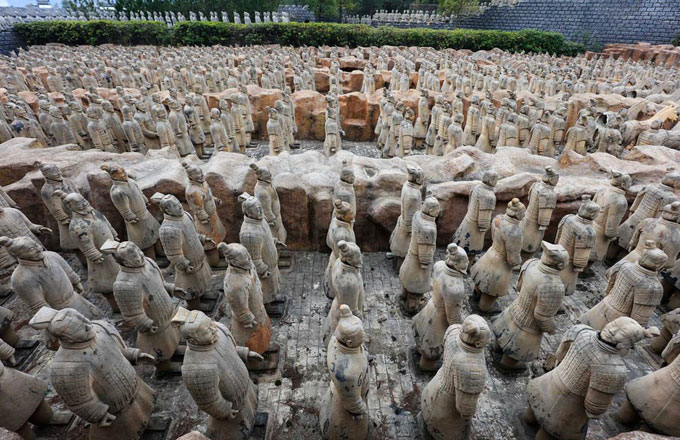The case for a national park system in China
Editor’s note: In June 2015, the National Development and Reform Commission of China announced that China's emerging national park system would be developed over the following three years. So far, nine pilot projects have been launched, two of which focus on the protection of rare species.
In 2001, the Nature Conservancy, a leading international environment organization, joined Yunnan province to explore the possibility of building a national park by balancing conservation and development, while complementing the existing nature reserve system.
Zhao Peng, deputy director of TNC China, shared with China Daily his thoughts on the future of national parks in China.
Q: China Daily
A: Zhao Peng, deputy director of TNC China
Q: TNC is an international organization with 64 years of experience in conservation. It was invited to assist Yunnan province with a national park initiative in 2001. What kind of experience did TNC have there?
A: Around the world, more than 200 countries have their own national parks. Obviously, every country cherishes its valuable, irreplaceable natural and cultural heritage. National parks represent a country, a spectacular legacy handed down to future generations. They belong to all humanity and are an effective way of protecting environmental resources and human civilization.
Chinese National Parks are part of a country’s national heritage that all Chinese should be proud of. They help cultivate national pride and patriotism and should be passed on to our children undamaged.
About 17 years ago, TNC introduced China to the experience it had gained in the US. We organized groups of government officials, experts, scholars, conservation staff and farmers to visit national parks in the United States, New Zealand, Australia and worldwide. In Yunnan, together with the local government, we piloted the national park system in Potasto, Meili Snow Mountain, and Laojun Mountain. We assisted these parks with their master planning, scientific management and community engagement. At provincial level, we helped the Yunnan government to develop several national park related standards, guidelines and legislation at provincial level.
Q: What do you think is the biggest challenge facing the establishment of national parks in China?
A: National parks are not only about environmental protection, they are also beyond conservation. It’s not just a place protected from development but also a place for us to understand who we are, where we are from and where we are going to be. It’s the same as worldwide. National parks are places that can inspire national pride. Every citizen can be proud of their homeland’s abundant and stunning natural resources and landscapes when they visit national parks.
The problem is that if we just focus on conservation, we would be limited in resources to build the system in terms of money, administrative supports, and staff. Sometime we may even have to compromise it with economic growth and development.
I think we should elevate national parks to a national strategic interest, requiring immense resources to support and set it as a priority over economic growth.
Q: In China, we have our own existing protected area systems. For instance, nature reserves and scenic areas, why do we need to add national parks as a new one?
A: One of the reasons behind the popularity of national parks around the world is their contribution to a country’s soft power. They can benefit domestic taxpayers, help build a country’s international reputation and offer sustainable economic benefits. A total of 225 countries have learned from the US and built more than 3,800 national parks, accounting for 22 percent of the world’s protected areas.
The biggest difference between a nature reserve and a national park is that the latter offers more social and economic benefits, whereas compared with a scenic spot, a national park can contribute more to environmental protection. National Parks are something in between to fill the gap.
There should be a balance between protection and utilization in any successful national park, so that it can offer both development opportunities and effective protection.
Q: What steps do you think we should take to build the system in China?
A: While we are trialing good models in the current pilots, we should also think about the system layout nationwide.
I think the top priority should be introducing a set of nationwide unified regulations which would be national park standards. We should set criteria for future park selection. The parks selected should be representative of the country’s cultural and natural treasures. Parks selected should benefit general visitors and local communities.
Secondly, I suggest conducting a thorough investigation of China’s natural resources, ecological protection and management system, and clarifying the difference between national parks and other protected areas. We could assist in selecting the most suitable regions to build national parks.
Thirdly, with the criteria developed and the resource investigation, we should be able to spatially layout the system across China.
National park initiatives should be lead, funded and operated by the central government. If national parks need to be delegated to local governments, a proper process should be in place to supervise and appraise their performance.
Last but not least, I think a proportion of profits from national parks should go to local governments. National parks can only survive and flourish if they bring benefits to the local communities around them.




















